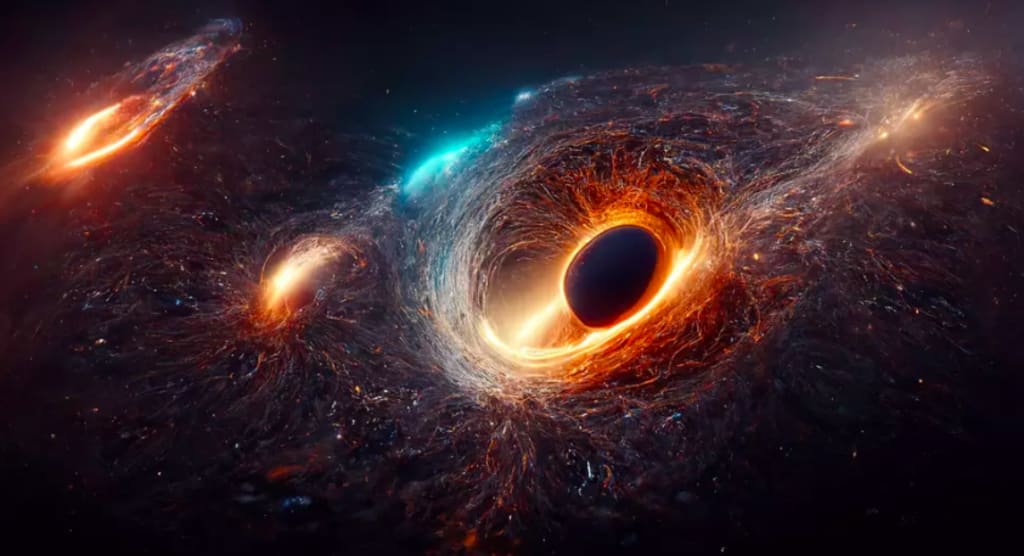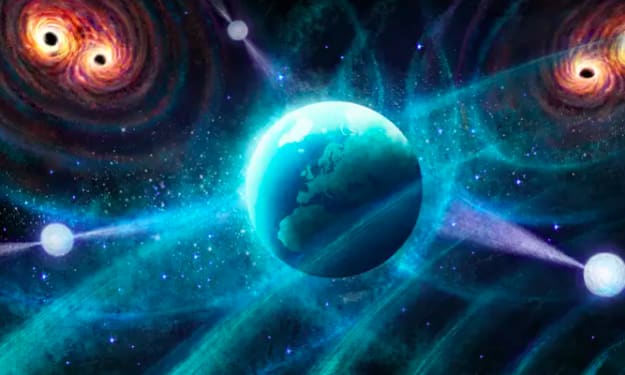
A novel hypothesis has substantially revised Stephen Hawking's 1974 theory on black holes, proposing that all objects with mass might ultimately vanish. Stephen Hawking's renowned theory regarding black holes has received a grim update, asserting the inevitable evaporation of everything in the cosmos. In 1974, Hawking introduced the idea that black holes gradually dissipate through Hawking radiation, releasing energy in the form of light particles due to their potent gravitational pull. A recent alteration to this theory suggests that Hawking radiation isn't exclusive to black holes but extends to all objects possessing sufficient mass.
If the hypothesis holds true, it signifies that over time, all matter in the universe will dissipate as its energy is emitted in the form of light. Lead author Heino Falcke, a professor of astrophysics at Radboud University in the Netherlands, explains that this radiation extends to objects without an event horizon, such as remnants of deceased stars. Eventually, everything in the universe, including non-black hole entities, would evaporate, akin to black holes. This adjustment not only impacts the understanding of Hawking radiation but also alters perspectives on the universe's destiny.
In accordance with quantum field theory, space is not an empty vacuum but teems with minuscule vibrations. These vibrations, when sufficiently energized, give rise to virtual particles, generating packets of low-energy light known as photons. Hawking's 1974 paper posited that the extreme gravitational force near black hole event horizons would produce photons in this manner. The warping of space-time due to gravity causes quantum fields to distort, leading to the appearance of photons in the contorted vicinity of black holes. This energy extraction from the black hole's field eventually contributes to the notion that black holes will dissipate completely.
However, the new study investigates whether the creation of Hawking radiation requires solely a gravitational field or if it necessitates the unique conditions of a black hole's event horizon. By employing the Schwinger effect, a theoretical process of generating matter from electromagnetic field distortions, the authors explored this question. Their findings propose that a gravitational field alone is sufficient for energy to seep out from massive objects in the form of light, making an event horizon unnecessary.
Despite the intriguing implications, the actual consequences of this theory remain uncertain. It's plausible that aging matter could transition into an ultra low energy state, potentially leading to the formation of black holes, which could slowly emit light until their disappearance. However, this speculation awaits validation. To confirm this prediction, physicists need to observe Hawking radiation around gravitationally dense objects like black holes, planets, stars, or neutron stars. If the hypothesis is correct, there should be various sources of evidence pointing towards the eventual evaporation of all entities.
However, it's important to note that this concept is still speculative and not proven. The universe's fate and behavior on cosmic scales are subjects of ongoing research and debate among physicists. While the idea of all objects in the universe slowly evaporating into light is intriguing, there are many unknowns and complexities involved.
The current leading cosmological model suggests that the universe is undergoing accelerated expansion, driven by a mysterious form of energy called dark energy. This model also predicts that the universe will continue to expand indefinitely. Whether this expansion would lead to an eventual state where all matter has dissipated into Hawking radiation is a matter of conjecture and requires further scientific investigation.
In summary, while the notion of the universe "evaporating" is a captivating concept derived from theoretical extensions of Hawking's work, it's far from established as a concrete scientific prediction. Our understanding of the universe's destiny remains an active area of study and exploration within the field of cosmology.





Comments
There are no comments for this story
Be the first to respond and start the conversation.